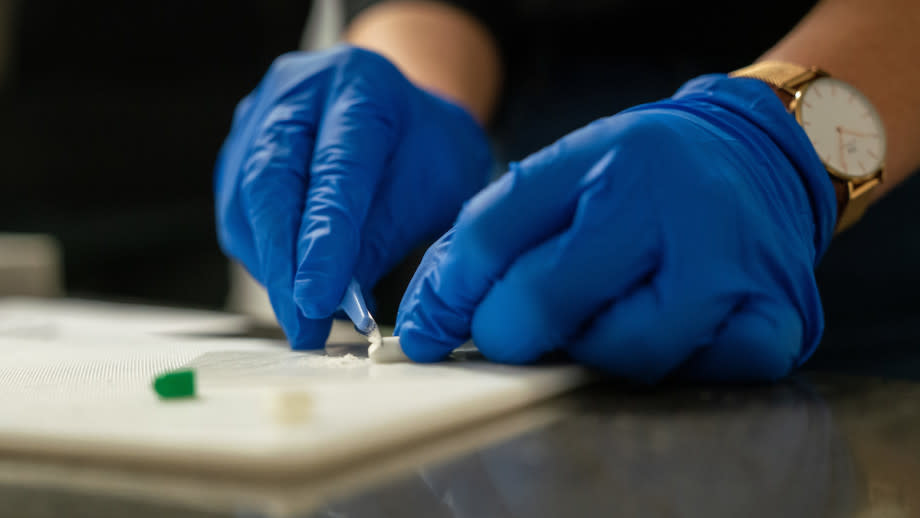'It's really weird': Unknown street drug discovered by authorities

An unknown recreational drug has been discovered in Australia in what’s believed to be a world-first event.
The drug was handed in in a plastic bag in Canberra before being tested by CanTEST, a drug-testing service launched in the city in August.
In routine tests, it became clear that it was similar to - but not the same as - ketamine, an anaesthetic and dancefloor hallucinogen.
“Someone presented a small plastic bag of crystals and powder to the testing service," Professor Malcolm McLeod, from Australian National University (ANU), said.
"They told us that they thought it was ketamine but that the effects of the drug were very different to what they expected, so they wanted us to test it.
"But when we tested the substance it was clear it wasn't ketamine, but rather a ketamine-like substance. That's why we have called it CanKet -as in Canberra ketamine.
"While we have a clear read-out of the chemical structure of the drug, we're still not quite sure of what its effects are.
"Our initial reaction was 'whoa, this is really weird'. We have no idea who made the drug and where it came from. But we now know it's out there."
Read more: Alcoholics should be given ketamine to break addiction
Ketamine is typically snorted or injected but can also be taken orally. It provides a powerful high for about an hour and is related to anaesthetics, including horse tranquilisers.
Common side-effects include nightmares, hallucination, high blood pressure, and confusion. In recreational use, it is also associated with a phenomenon known as the 'k-hole' - a state of dissociation akin to an out-of-body experience.
"Ketamine is a potent drug, used regularly and safely as a 'dissociative' sedative in the management of acute medical and veterinary conditions," emergency department consultant and clinical drug expert Associate Professor David Caldicott, from ANU, said.
"Traditionally, much of the ketamine that we have found in the illicit market has been diverted from these sources. This is something quite new, which has never been reported, anywhere, by a drug-checking service.
Read more: A 1988 warning about climate change was mostly right
Caldicott said, "While it would be fair to say we understand ketamine very well as a drug, we literally have no other data as to what the acute or chronic effects of this close cousin might be. And that is disconcerting. Assuming that it is 'safe' because it appears related to ketamine would be an error of judgement.
"This is why services like CanTEST are so invaluable. It allows us to identify never-before-seen drugs, as well as common drugs, and provide people who use the service clear guidance on the likely health and other effects of these drugs. This can potentially save lives.
"This time around the testing service has identified a product never before seen in Australia, or most other parts of the world, and with no clinical information associated with it anywhere.
"And while we don't know all the effects of this particular drug just yet, we can give people a clearer idea of the likely effects, based on the chemical makeup it has and advise them accordingly."
Watch: Jamaica's radio stations ban music referencing crime and drugs


